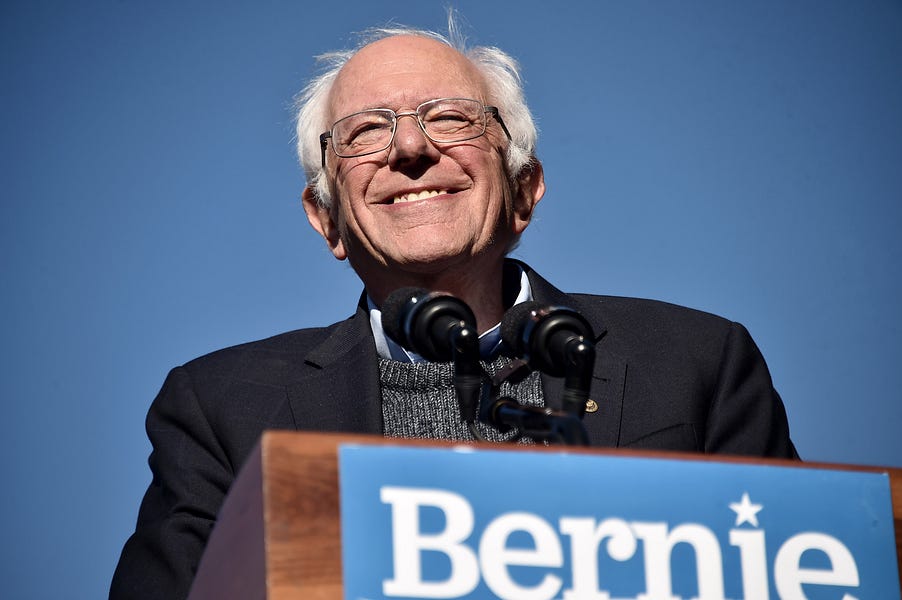For most of my life the rule of thumb was that the GOP was the ideological party and the Democratic Party was the coalitional party.
This always was an overgeneralization. Democrats had an ideological perspective, and Republicans had coalitional interests. But from the New Deal to around the end of the Bush years, it was generally true. I used to think it had to do with the superiority of conservative ideas, but I’m coming around to the view that it has more to do with the way political power works.
There was obviously an ideological component to the New Deal and the Great Society. Stated plainly, the people at the helm of those projects believed in the power of the state or “big government” to steer the whole of the country in a positive direction. But if you look at the members of the FDR coalition, you’ll find a lot of diversity. There were intellectuals and populists, capitalists and socialists, racists and civil rights leaders, isolationists and interventionists, corrupt party bosses and the reformers who hated them, poor farmers, urban union leaders, Southern conservatives, blacks, whites, Jews and immigrants, all swirling about, often battling to win the president’s favor. That’s what you get with majority parties—a diverse coalition of interests all trying to get their place at the trough.
As the saying goes in Washington, if you’re not at the table, you’re on the menu.
The GOP was a minority party for most of that time, and even when that started to change, it still usually thought like a minority party. By that I mean minority parties emphasize ideological cohesion and partisan unity. Always at a disadvantage, they tend to understand that if they don’t stick together, sharing each other’s priorities and leveraging what strength they have, they’ll get steamrolled by the majority.
It might seem paradoxical, but being in the minority makes arguments over principle more important. When you have little or nothing to trade, you argue about ideas. When you have stuff to trade—taxpayer money, jobs, seats on commissions and committees—ideological differences are easily papered over. Moreover, because majority parties in a democracy are by definition governing parties, there’s less reason to get bogged down in debating questions about ideological nuances.
The least ideological politicians in American life have always been the heads of political machines, such as Boss Tweed of Tammany Hall or the mayors of cities like Chicago. In such places, high-minded complaints about principles are easily assuaged with a construction contract or a monopoly on hot dog concessions at the ballpark.
The GOP hasn’t exactly figured out how to govern like a majority party, but under President Trump it’s behaving a lot more like an urban political machine, doling out goodies to members of its coalition with little concern for a coherent philosophic rationale. The role of ideological principles has been decidedly downgraded, as religious and economic conservatives get the stuff they want in terms of policies and jobs.
Meanwhile, the Democrats are behaving more and more like a minority party, putting ideological commitments ahead of coalitional interests. Bernie Sanders is the most obvious and important illustration of this. The de facto front-runner in the Democratic primaries, Sanders is like a left-wing Barry Goldwater—the ideological icon who spearheaded the conservative takeover of the GOP in 1964, in part by losing to Lyndon B. Johnson in a landslide.
Sanders is a pure ideologue who sees no reason to compromise his brand of socialism for the sake of coalitional interests. He wants no help from the rich if the rich expect anything in return. He insists that pro-lifers have no place in his party, and he doesn’t seem to care if things like fracking bans will cost the country jobs and his party votes.
My theory isn’t neat and tidy because politics are never neat and tidy. Sanders thinks he has the majority on his side. He doesn’t.
More broadly, Democrats don’t see themselves as a minority party—minority parties are often the last to realize they aren’t as popular as they think they are. Also, the desire to defeat Trump has a tendency to crowd out ideological arguments. Which is why Bernie, like every other Democrat, leads with the promise that he is the best candidate to defeat Trump.
And that’s a shame, because I’d love to see the billionaire-hating socialist and progressive billionaire capitalist Michael Bloomberg have an actual debate on their ideas. That debate may just have to wait until after Sanders fulfills his role as the woke Goldwater, truly making the Democrats a minority party by losing in 2020.
Photograph of Bernie Sanders by Bauzen/GC Images.









Please note that we at The Dispatch hold ourselves, our work, and our commenters to a higher standard than other places on the internet. We welcome comments that foster genuine debate or discussion—including comments critical of us or our work—but responses that include ad hominem attacks on fellow Dispatch members or are intended to stoke fear and anger may be moderated.
You are currently using a limited time guest pass and do not have access to commenting. Consider subscribing to join the conversation.
With your membership, you only have the ability to comment on The Morning Dispatch articles. Consider upgrading to join the conversation everywhere.